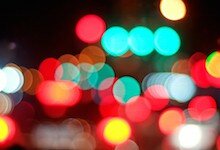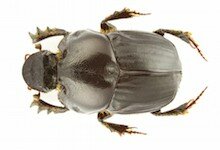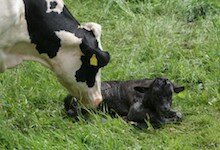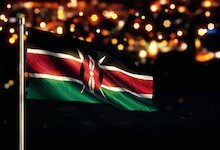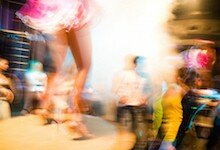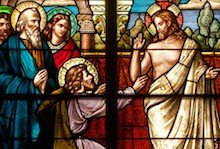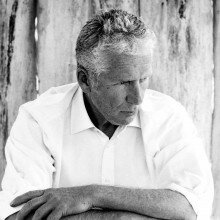
Anthony Lawrence, born in Tamworth, NSW, has published fourteen collections of poetry and one novel. In all his published work, he has made wonder, amazement and revelation his specialty. This is partly because he is an astute observer of the natural world, but Lawrence is never merely a bystander recording, noting, detaching as a naturalist might, or as some nature poets might set down particularities with a sense of “a discipline of rightness”. Instead, Lawrence’s poems are immersed in and backed up by an extraordinary facility of imagination that works his material extensively and ambitiously.
His poems deliver the world enlarged and energised because his language moves beyond description and towards revelation. What matters to Lawrence is how one’s inward and organic energies can be transmuted by and into poetic utterance. Nature is often a source for transformation and redemption, a rich ground for vision and metaphors. His best work fuses language so well with vision that his poems take on mystical transport. His flair is in linking language with enchantment, in entering into and committing to his imagination. The poet himself is well aware of this tendency. In ‘The Pines’, Lawrence gives what reads like a self-summation of his approach:
that observation can be just another word
for full immersion, or for skimming the tight skin
of a thought, that it’s transformative, or passive
and when I try to choose between
taking the air and taking what I need
to use for later, for working the rhythms
of breath and blood flow into verse, I mostly fail
in my resolve to leave a scene alone
knowing what a glance takes in
will be changing already as I think of it . . .
Lawrence’s daring, off-centre imagination, however, always has tenancy in the extrinsic world, and he is masterful, too, at portraying the erotic. In ‘Wolf, Leopard, Falcon, Fawn’, the act of love-making is a site for powerful conjuring of the animal and totemic, the lovers transformed beyond the human into vital connection with elemental forces of nature. In ‘Heat’ the approach is briefer and less symbolic, but no less erotic for the way the poem fuses bodily images of love-making with eating.
It is with great bravura that Lawrence sets up his metaphors to move into mythical and metaphysical areas. An acute awareness of death is often at the centre of his poems and though there is moodiness in Lawrence’s work, there’s a lack of sullenness or cynicism, a sense that at the core of experience there is redemption and the transmutative and regenerating fires of poetry. Lawrence has written very movingly about other poets: Cavafy, Baxter, Ginsberg, Dickey, Muldoon. In ‘The Hart Crane Connection’, Lawrence makes an imaginative leap between livestock sailing to their slaughter and Crane’s last moments before jumping off the back of a ship and drowning. The poem says something about the cost of creative effort, the price it can sometimes exact:
his epic poem, making
connections between coincidence
and divine intervention;
reality, and what’s imagined for the page;
the poet, the architect
and slaughter;
life’s construction and its fall.
Later work is touched by a more elegiac tone and some of his earlier exuberance and Romanticism has been replaced by a sense of loss, but Lawrence is always able to modulate his voice in ways that are both casual and intense, and in all his books there are poems which display a sense of the speculative and the surreal. ‘Snowflake’ and ‘Retirement’ are examples of how he can take the improbable, and through precision of voice and imaginative detail, make an odd scenario entirely believable.
Lawrence’s book-length poem, The Welfare of My Enemy, which delves into the phenomenon of missing persons from differing viewpoints – including victims, perpetrators, detectives, parents of missing children, psychiatrists – is a dark exploration of grief, loss and uncertainty. Lawrence is astutely keyed in to many of the psychological imperatives that underpin the narratives. His abilities with story, drama and character first came to the fore in his ground-breaking ‘Blood Oath’ sequence published in his 1992 volume Three Days out of Tidal Town. Later work builds upon those powers and reaffirms his reputation as a poet who is artfully versatile and whose work is also compassionate and humane.
the way a life can end? It’s clear
from those who were there, or near
that descriptions and events that led
to where someone’s life was ended
are beyond the calls of the ground and air-
dwelling denizens of this place. Nowhere
they say as one. Nothing, the night wind blows.
A flashlight stutters and dies. The scene is closed.
In this work, Lawrence has set himself the formal challenge of using rhyming, sometimes half-rhyming, couplets. This adds extra interest and linguistic resourcefulness to the poems, but in all his books there is astute attention given to craft. It is not unusual to find that his poems are all one sentence (‘The Pines’, ‘The Rain’) and he beautifully settles the weight and drift of his cadences in ways that are immensely satisfying. Though his sentence constructions can be complex, his line-breaks disencumber any heaviness that might be produced by the on-going syntax. Lawrence is a maker of graceful and elegant sentences and he can capture an extraordinary number of windfalls in his poems because of the way he garners sonic strength from his rhythms, and the way he positions and balances the thoughts with the lines, each line letting a poem run out a little further on its syntax, shaping the pulse of thought, as is shown in these lines from ‘The Rain’, whose syntax swells and rushes over distance like the rain itself:
and hours of it, inches and yards of light
and dark rain, where seamless clouds had been
stitched and gathered into a great undoing
of itself, in wind that brings its freeplaying ride
through a highland plateau down into the hair-
pinned, run off green below Mount Arrowsmith . . .
Lawrence is a highly emotional poet who can travel through physical and emotional landscapes charting and linking his perceptions to a larger, implied whole. His poems are energised by engagement with thresholds. He pays evocative attention to intimate detail and to bardic scope. At his best, his poetry is breathtaking for its risks, its depth and its linguistic accomplishments.
BIBLIOGRAPHY
Poetry
Dreaming in Stone, Angus and Robertson, North Ryde, 1989
Three Days out of Tidal Town, Hale and Ironmonger, Sydney, 1992
The Darkwood Aquarium, Penguin Books, Ringwood, 1993
Cold Wires of Rain, Penguin Books, Ringwood, 1995
The Viewfinder, University of Queensland Press, St Lucia, 1996
New and Selected Poems 1989-1998, University of Queensland Press, St Lucia, 1998
Skinned by Light, University of Queensland Press, St Lucia, 2002
The Sleep of a Learning Man, Giramondo Publishing, Artarmon, 2003
Strategies for Confronting Fear: New and Selected Poems, Arc Publications, Todmorden, England, 2006
Bark, University of Queensland Press, St Lucia, 2008
The Welfare of my Enemy, Puncher and Wattmann, Glebe, 2011
Signal Flare, Puncher and Wattmann, Glebe, 2013
Fiction
In the Half Light, Picador, 2000
LINKS
Anthony Lawrence blog for Southerly in 2014
Anthony Lawrence on Poetry Archive
Toby Davidson’s review of Signal Flare
Martin Duwell’s review of Signal Flare
Maria Frei writes on Lawrence’s early books
Review by Kate Middleton of The Welfare of my Enemy
Interview by Lee-Anne Davie
Interview by Ralph Wessman


